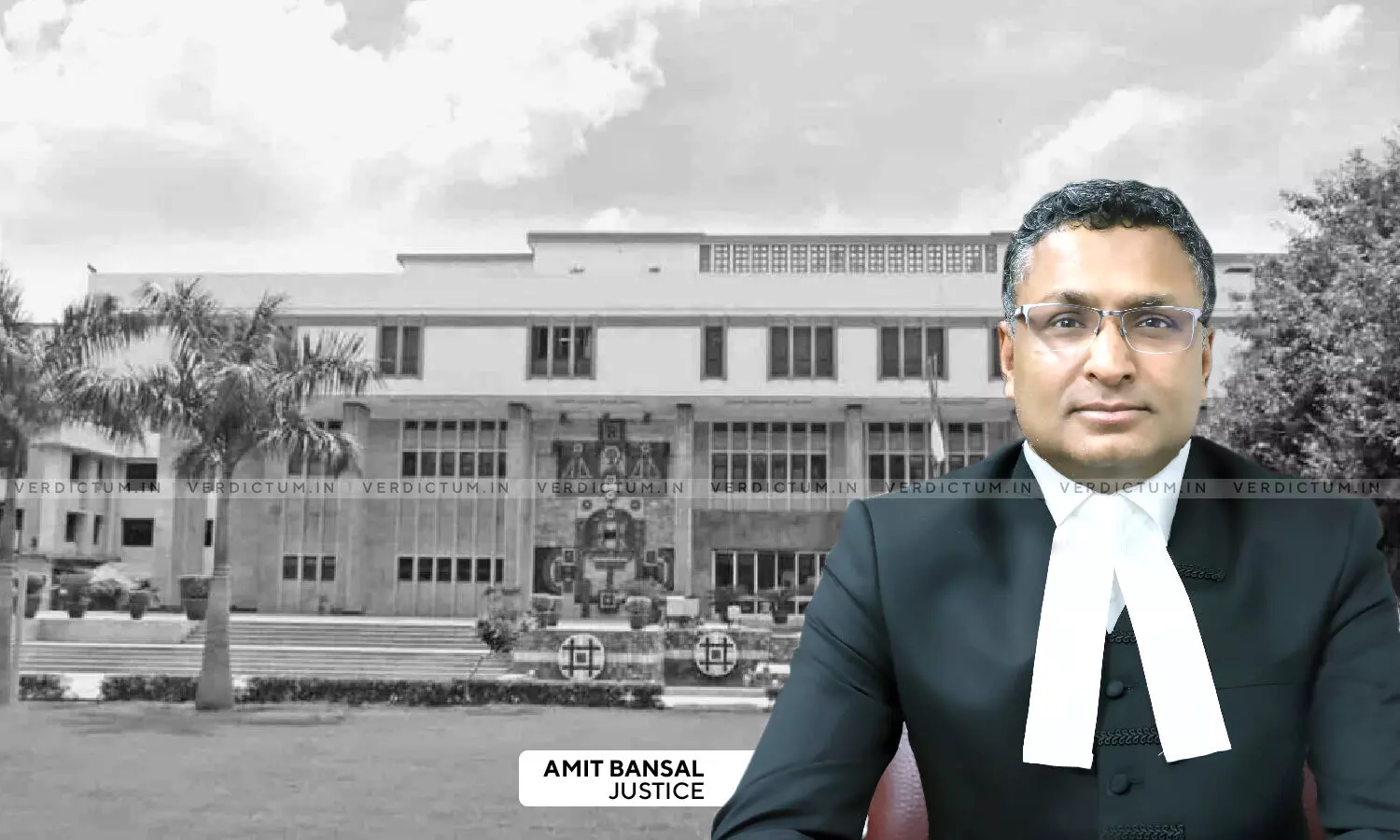
Company Can Only File Suit At Place Where Cause Of Action Has Arisen And Not Where Its Principal Office Is Located: Delhi High Court
 |
|The Delhi High Court noted that even though the head office of the Plaintiff is located in Delhi, no part of the cause of action has arisen in Delhi.
The Delhi High Court held that a company can only file a Suit at a place where cause of action has arisen and not where its principal office is located.
The Court held thus in a Suit instituted by a company seeking permanent injunction restraining the other company from infringing the trademark and an Application seeking return of the Plaint for want of territorial jurisdiction and material suppression of facts by the Plaintiff.
A Single Bench of Justice Amit Bansal observed, “The defendant contends that the present case squarely falls under the third situation contemplated in paragraph 14 of Ultra Home (Supra) set out above i.e., plaintiff has a principal office at one place and the cause of action has arisen at a place where the plaintiff has a subordinate office. Therefore, in such asituation the plaintiff can only file a suit at a place where its subordinate office is located and cannot sue at the place of principal office.”
The Bench noted that even though the head office of the Plaintiff is located in Delhi, no part of the cause of action has arisen in Delhi.
Advocate Saurav Agrawal appeared for the Plaintiff while Senior Advocate Raj Shekhar Rao appeared for the Defendant.
Case Background
The Plaintiff, an Indian seed company had its registered office at New Delhi. It had obtained necessary approvals to produce and sell Bollgard II cotton hybrids in Madhya Pradesh, South Rajasthan, Gujarat, Maharashtra, Andhra Pradesh, Telangana, and Karnataka. The Defendant, an Indian company having its registered office at Guntur, Andhra Pradesh, was engaged in the production and marketing of agro inputs. Since 2014, the Plaintiff has had a co-marketing arrangement with the Defendant to co-market its BG cotton hybrids. The same was renewed annually for the purpose of marketing and distribution of 5 different cotton hybrids. The Marketing Agreement of 2022 being executed in New Delhi was the latest iteration of the arrangement which was valid up to December 31, 2022.
In September 2022, the Plaintiff issued a notice to the Defendant stating that it did not intend to renew the agreement. Thereafter, it communicated to its various distributors that beginning from the next year i.e., Kharif 2023, it will not sell its products to the Defendant. Instead, it decided to sell its products directly. In October 2022, the Plaintiff learned that the Defendant was promoting and taking advance bookings for Kharif season for the sale of BG II cotton hybrid seeds under the brand names of ‘VEDATADAAKHAGOLD BG II’, ‘VEDA SADANAND GOLD BG II’ and ‘VEDA BASANT GOLD BGII’ (impugned marks). Consequently, the Plaintiff issued a termination notice to the Defendant and 15 days’ time was given to rectify its actions. Thereafter, it filed the Suit before the High Court.
Reasoning
The High Court in the above context of the case, said, “From a holistic reading of the plaint and the application under Order II Rule 2 of CPC above, it is abundantly clear that the present suit is not premised on any cause of action based on the Marketing Agreement or the breach thereof. Therefore, the plaintiff cannot claim jurisdiction on the basis of the Marketing Agreement, even if the same was executed in Delhi. The jurisdiction would have to be determined on the basis of averments in the plaint regarding trademark infringement and passing off.”
The Court remarked that through clever drafting, the Plaintiff tried to bring in the element of the Marketing Agreement in the paragraph dealing with jurisdiction, even though the cause of action for filing the Suit is totally based on an action of infringement and passing off.
“Once again, by way of clever drafting the plaintiff has tried to create jurisdiction on the basis of the listing of the defendant’s product on India Mart and like portals by stating- “impugned goods of the defendants are available on various e commerce platforms like India Mart etc., which are available for access within New Delhi”, it added.
The Court was of the view that the Plaintiff failed to show that any part of cause of action has arisen within the territorial jurisdiction of the Delhi High Court. It further said that the cause of action appears to have arisen at a place where the Plaintiff has its subordinate office and hence, the Plaintiff cannot maintain this Suit in Delhi.
“In view of the discussion above, in my considered view, a reading of the plaint and the documents filed with the plaint does not disclose any part of cause of action arising within the territorial jurisdiction of this Court. The plaintiff cannot claim jurisdiction only on the basis of the location of its head office in Delhi, when it has subordinate office(s) at place(s) where the cause of action has arisen”, it concluded.
Accordingly, the High Court allowed the Application and ordered that the Plaint be returned under provisions of Order VII Rule 10 of the Civil Procedure Code, 1908 (CPC) to be presented in a Court having jurisdiction.
Cause Title- M/s Kohinoor Seed Fields India Pvt. Ltd. v. M/s Veda Seed Sciences Pvt. Ltd. (Neutral Citation: 2025:DHC:2593)
Appearance:
Plaintiff: Advocates Saurav Agrawal, Adarsh Ramanujan, Shantanu Agrawal, Kapil Rustagi, Chandreyee Maitra, Asmita Srivastav, Allaka M., Manas Arora, Ajay Sharma, Raghav Thareja, Shivam Chaudhary, Surabhi Mahajan, and Parth Singh.
Defendant: Senior Advocate Raj Shekhar Rao, Advocates Kapil Wadhwa, Sindoora VNL, Vishakha Gupta, Twinkle Rathi, Thithiksha Padman, and Anish Jandial.